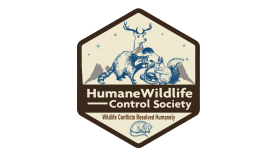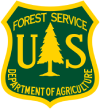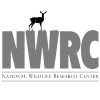Humane Wildlife Control in Philadelphia, PA
The Humane Wildlife Control Society recommends non-invasive solutions to resolve human-wildlife conflicts. This includes:
Determining if the issue needs to be addressed at all
Opting for preventative measures first
Opting for wildlife exclusion as opposed to trapping
If trapping is the only way to solve the problem do so humanely
The Humane Wildlife Control Society screens candidates prior to recommendation. Our process requires any company we recommend to meet the following criteria:
Is properly licensed in Pennsylvania for wildlife control
Carries appropriate business licenses and insurance
Complies with all Pennsylvania laws and regulations for wildlife control
Adheres to the humane principles listed above.
In Philadelphia, Pennsylvania we recommend Humane Wildlife Removal Philadelphia for professional wildlife control services. This is a private company that charges for their services.
Contact Information:
Wildlife Removal Philadelphia
215-874-6600
If you have any wildlife issues that can be handled by the state government agency for free, the Pennsylvania Wildlife Commission can help.
State Contact Information: 570-398-4744
The State Department of Agriculture may also be able to address your wildlife problem for no charge.
USDA Contact Information: (717) 787-4737
Responding to Wildlife Encounters in Philadelphia, Pennsylvania: Ensuring Public Safety and Ethical Protocols Understanding Philadelphia’s Wildlife Principles of Ethical Wildlife Response Maintain a safe distance from the animal. Avoid feeding wildlife, which can lead to dependency and increase future conflicts. Use secure trash bins and avoid leaving pet food outside. If an animal appears injured or poses a threat, contact local wildlife authorities or animal control for assistance. Share information with neighbors about safe wildlife practices. Follow guidelines set by the Pennsylvania Game Commission regarding the handling and reporting of wildlife encounters. Employ non-lethal deterrents (e.g., noise makers, motion-activated lights) to discourage wildlife from inhabiting populated areas. Support local conservation efforts aimed at maintaining a natural balance between urban development and wildlife habitats. Attend and promote events focused on teaching residents about living harmoniously with local wildlife. Get involved with local wildlife rescue organizations and participate in conservation projects.
Introduction
Philadelphia, a bustling urban hub intertwined with natural landscapes, often sees interactions between residents and local wildlife. Understanding how to respond to these encounters safely and ethically is essential for the well-being of both people and animals. This essay provides guidelines for managing wildlife interactions while adhering to ethical standards and public safety protocols.
Philadelphia is home to a diverse range of wildlife, including raccoons, deer, foxes, and various bird species. Urban expansion has increased the likelihood of human-wildlife encounters, making it crucial for residents to understand how to respond appropriately.
Safety First: Prioritize human and animal safety in all interactions.
Humane Treatment: Minimize stress and harm to animals while managing conflicts.
Legal Compliance: Follow local, state, and federal wildlife regulations.
Public Education: Foster awareness and understanding of local wildlife behavior and ecology.
Responding to Wildlife Encounters
Stay Calm and Assess the Situation:
Observe the animal’s behavior to determine if it poses an immediate threat.
Do Not Engage or Feed:
Do not attempt to touch or capture wild animals.
Secure Food Sources and Habitats:
Seal entry points to prevent wildlife from entering buildings or homes.
Contact Professionals When Necessary:
Trained professionals can assess and handle the situation appropriately.
Educate Others:
Participate in local community workshops on wildlife management.
Legal and Ethical Considerations
Compliance with Regulations:
Adhere to federal laws such as the Migratory Bird Treaty Act, protecting migratory birds.
Use of Non-lethal Measures:
Promotion of Coexistence:
Community Involvement
Public Workshops and Seminars:
Volunteer Opportunities:
Conclusion
Managing wildlife encounters in Philadelphia requires a calm, informed, and ethical approach that prioritizes both public safety and animal welfare. By understanding local wildlife behaviors and following established protocols, residents can coexist peacefully with the animals that share their urban environment. Through education and community participation, Philadelphia can continue to enhance its reputation as a city committed to sustainable and ethical wildlife management.







